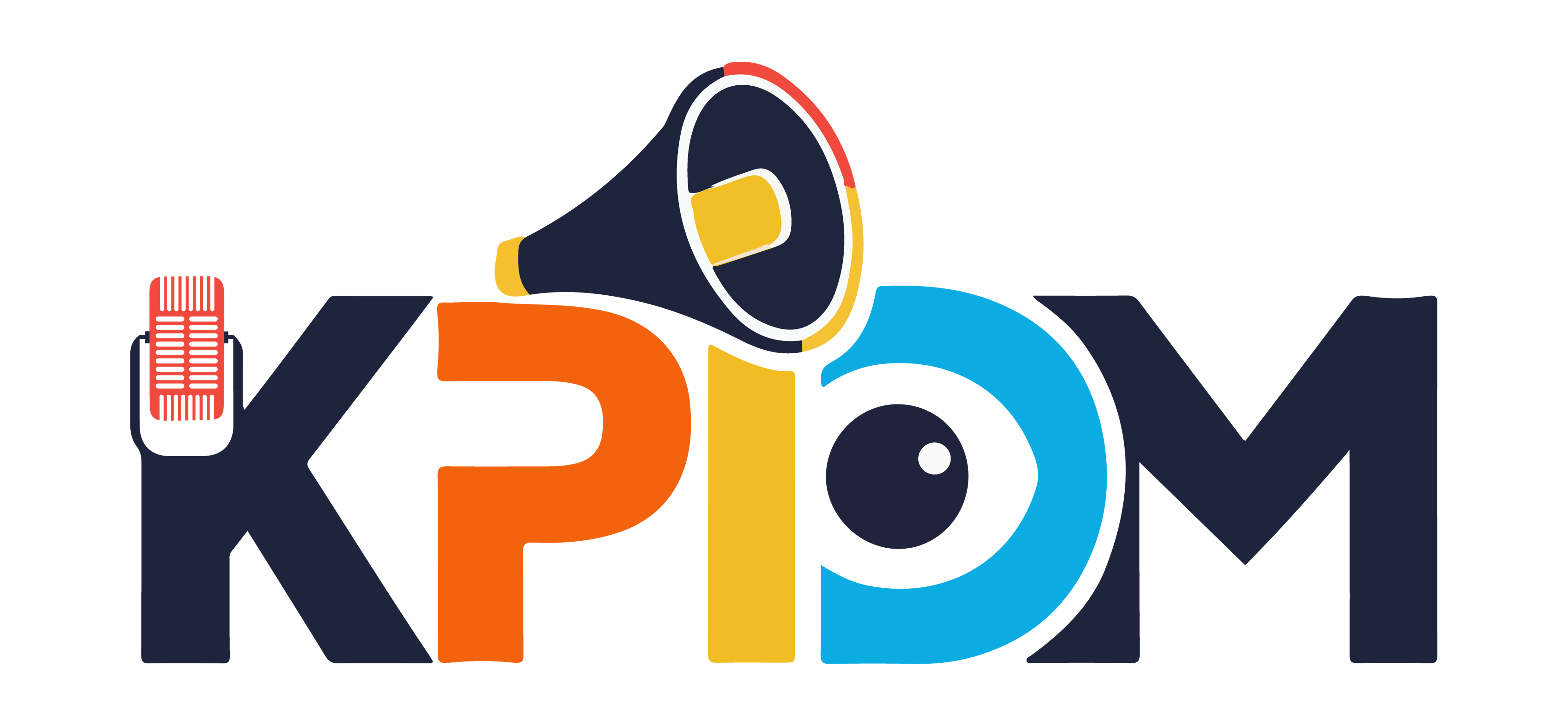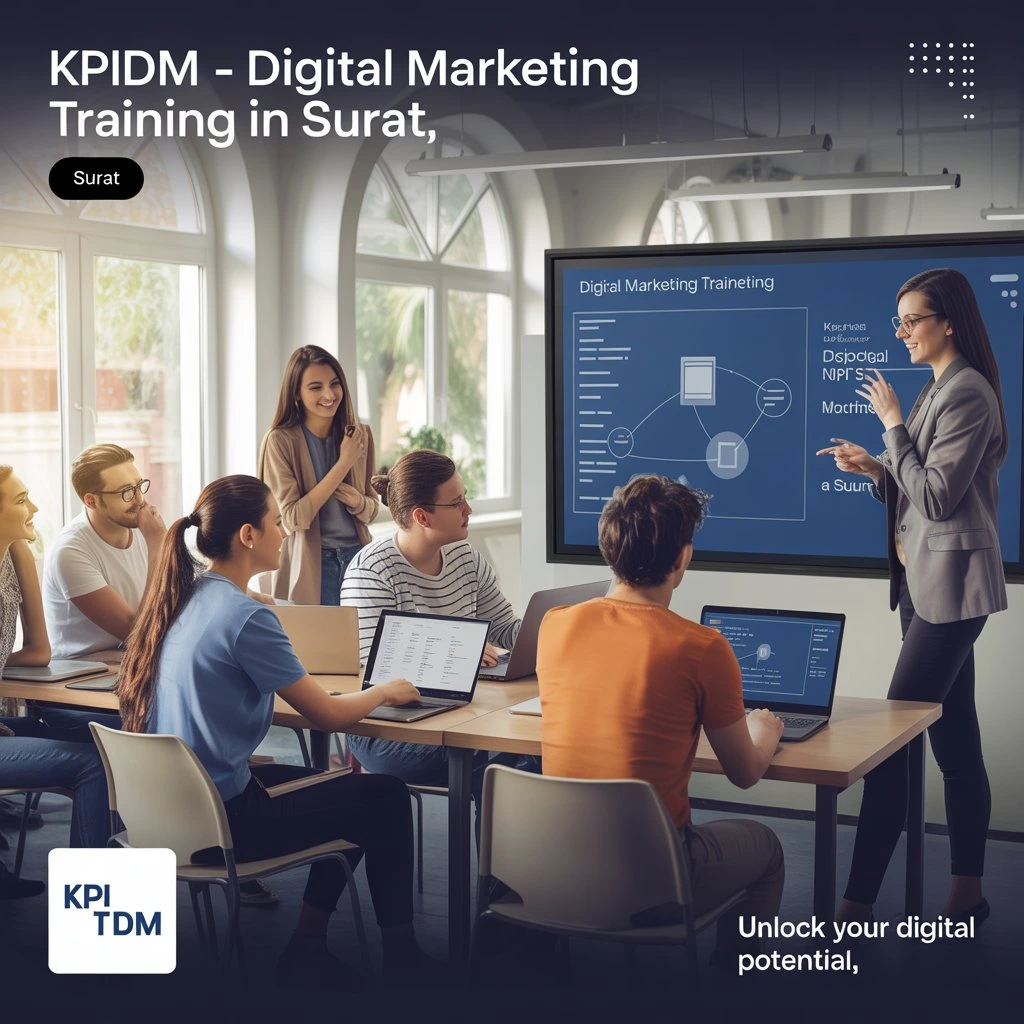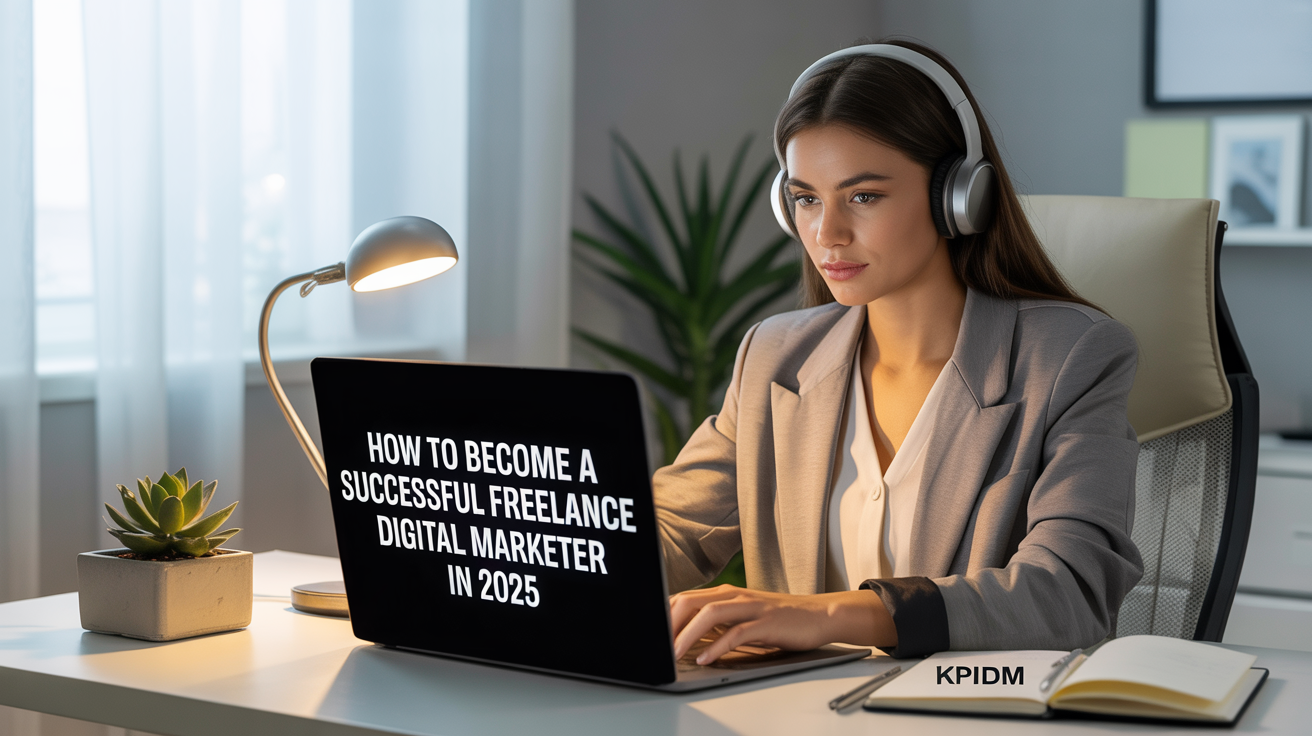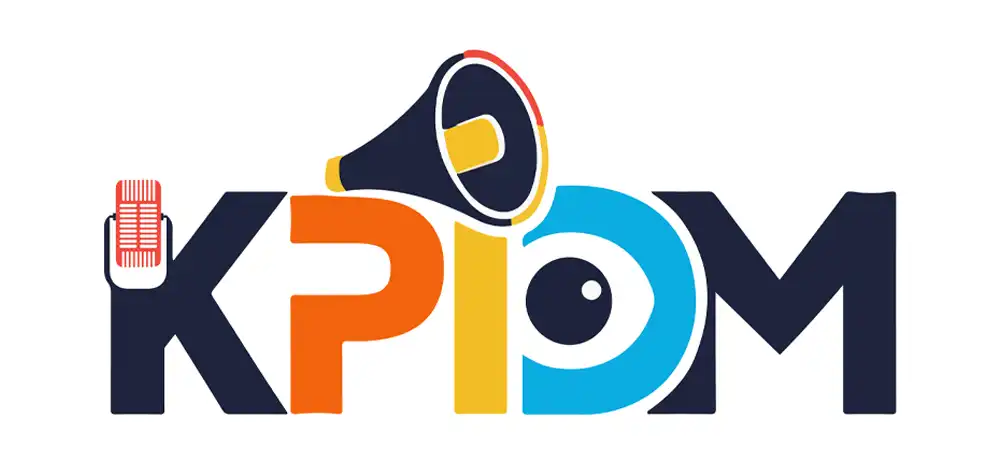AI-Driven Future Trends in Digital Marketing in 2025
AI is fundamentally reshaping digital marketing, driving hyper-personalization, dynamic content, and strategic automation across every channel.
Predictive Marketing Analytics: Forecasting Customer Behavior with AI
AI-powered predictive analytics help marketers predict customer behavior.This creates more targeted campaigns.
Tools like Dynamic Yield and Adobe Target adjust experiences in real time.Predictive analytics also helps brands plan smarter and use budgets better.
AI in SEO: Smarter Search Optimization
Embrace the future of search engine optimization with our comprehensive AI-powered SEO course designed to equip marketers with cutting-edge skills to thrive in the digital landscape of 2025.
Below are the key highlights of the course and what sets it apart:
Course Highlights AI-powered SEO Techniques: Learn how Digital Marketing use AI tools for semantic search optimization, voice and visual search adaptation, and predictive keyword analytics.
Real-World Projects: Get hands-on experience optimizing live websites and running AI-powered SEO audits to identify and fix issues in real time.
Access to AI SEO Tools: Practice with industry-leading AI platforms for automated content audits, keyword research, and competitive analysis.
Live Campaign Management: Implement SEO strategies on real business sites with guided support and performance tracking.
Personalized Guidance: Get 1-on-1 coaching from SEO experts with proven experience in AI-powered digital marketing.
Career Guidance and Employment Assistance: Get expert help in polishing your resume, mastering interview skills, and networking with leading digital marketing agencies focused on AI-powered SEO.
AI and Content Marketing: From Creation to Distribution
Artificial Intelligence (AI) is fundamentally reshaping content marketing, offering powerful tools that impact every stage-from ideation and creation to distribution, personalization, and performance analysis.
Content Creation :
Generative AI tools can draft blog posts, social media captions, video scripts, and even visuals, significantly speeding up the content creation process while maintaining high quality.
Content Distribution:
Analyzes audience behavior and engagement data to determine the best platforms, optimal posting times, and frequency for distributing content.
Personalization and Optimization :
AI-powered analytics dig deep into user behavior and preferences, enabling hyper-personalised content delivery.

Voice Search Engine Optimization in 2025: What AI Is Changing
AI is fundamentally transforming voice search engine optimization (SEO) in 2025, making it necessary for brands to rethink their digital strategies. Here’s how AI is reshaping the landscape:
Conversational Content and Natural Language Processing (NLP): AI-powered algorithms, such as Google’s BERT and MUM, enable search engines to better understand natural, conversational language and user intent.
Contextual and personalized search results: AI allows voice assistants to deliver highly personalized results by taking into account user context, location, habits, and previous interactions.
for example, when anyone asks, “Where is the Nearest Coffee Shop?”.
Mobile and Local SEO Emphasis: With over 90% of voice searches happening on mobile devices and a significant portion focused on local information, AI-powered SEO should prioritize mobile optimization and local SEO tactics.
Featured Snippets and Direct Answers: AI is increasing search engines’ ability to extract direct answers from content, often pulled from featured snippets or “position zero” for voice responses.
Continuous Optimization and Analytics: AI-powered analytics tools track and interpret voice search performance, allowing marketers to improve their strategies in real time.
Key Steps for 2025 Voice Search SEO:
- Implement structured data and schema markup for better visibility.
- Optimize for mobile speed and user experience.
- Prioritize local SEO with up-to-date business listings and geo-targeted content.
- Use AI-powered analytics to track, measure, and refine voice search performance.
Takeaway:
Brands that embrace these changes – by creating conversational, mobile-optimised content and leveraging AI-powered insights – will advance in SEO performance as voice search becomes the primary way for users to find information in 2025.

Visual AI: The Role of Image and Video Recognition in Marketing
AI can now “see” and “understand” images and videos.
In marketing, this means:
- Better tagging for SEO
- Product recognition in user photos
- Smarter recommendations
Visual AI helps brands connect with users through photos, not just words.
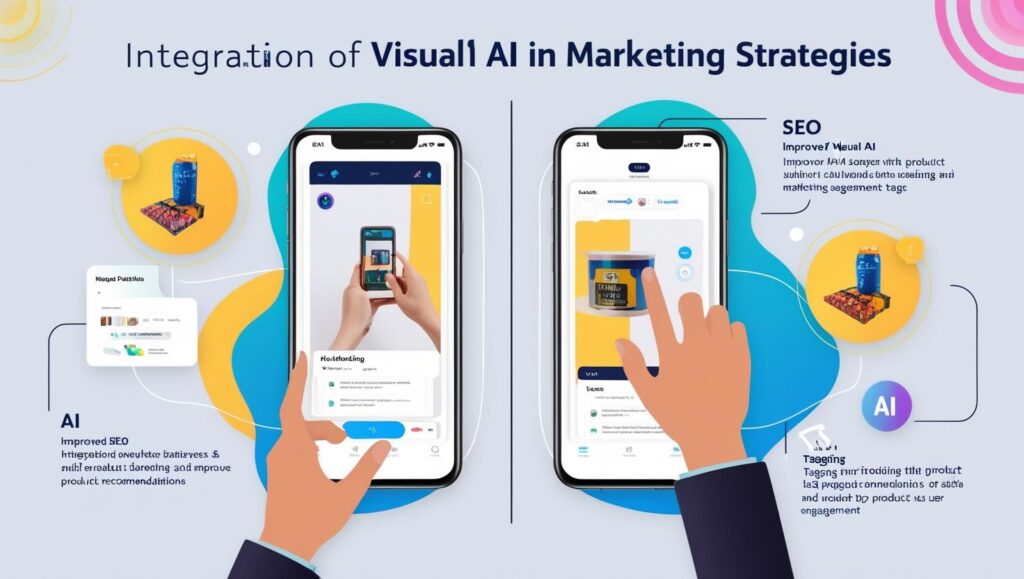
Real-Time Customer Support: AI Chatbots in 2025
AI chatbots are faster and smarter in 2025.
They:
- Answer questions 24/7
- Solve problems quickly
- Learn from every interaction
Many feel human-like now — improving customer service while saving time and cost.
AI and Email Marketing Trends in 2025
AI makes emails smarter.
In 2025,it helps:
- Pick the best time to send
- Write subject lines that get clicks
- Personalize offers based on behavior
This leads to higher open rates and better engagement.

The Rise of Marketing Automation Tools in 2025
AI is behind powerful automation tools that:
- Manage campaigns
- Score leads
- Personalise messages in real time
In 2025, marketing automation is essential and AI makes it smarter than ever.
Top AI Tools Transforming Marketing Strategies in 2025
Tool: ChatGPT
What They Do: These tools chat with customers automatically. They help answer questions, guide sales, and suggest products.
Why It’s Useful: Brands can talk to customers 24/7 without needing extra staff.
Tool: Jasper
What They Do: These tools write content like blogs, emails, and social posts. They save time by writing automatically.
Why It’s Useful: Marketers can create content faster and keep it high quality.
Tools: Google Ads, Facebook Ads
What They Do: AI adjusts ads automatically. It makes sure ads reach the right people.
Why It’s Useful: Ads perform better, and brands spend their ad money wisely.
Tool: Surfer SEO
What They Do: These tools help improve a website’s ranking on Google.
Why It’s Useful: It helps businesses get more website traffic and customers.
Tool: HubSpot
What They Do: These tools predict what customers will do next. They help marketers plan better.
Why It’s Useful: Marketers can act quickly and be more relevant to customers.
Tool: Optimizely
What They Do: These tools make each customer’s experience unique. They show the right products or content.
Why It’s Useful: Customers feel like brands understand them, leading to better sales and loyalty.
Tool: Mailchimp
What They Do: These tools send automated, personalised emails.
Why It’s Useful: It saves time and increases engagement with customers.
Case Studies: Brands Winning with AI in Digital Marketing
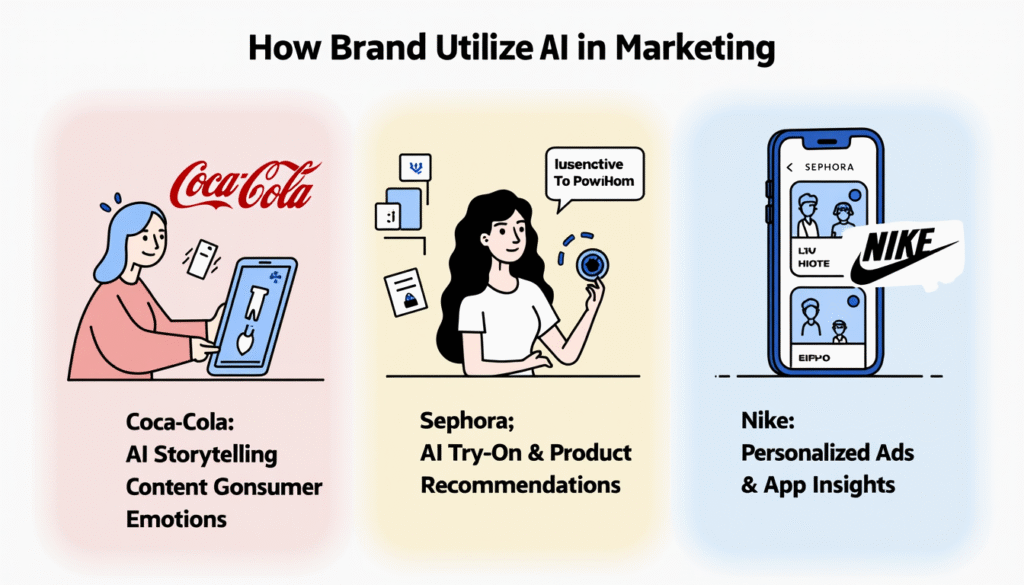
Enroll in Our Freelance Digital Marketing Masterclass.
Future-Proofing Your Digital Marketing Strategy with AI
Completely shifting your marketing plan for the upcoming years mandate that you have the latest AI integration that will take anticipate your customers’ needs in real-time.
Such changes are required in order to maintain competitive edge.
Hyper-Personalisation at Scale:
Adopting omnichannel innovations improves business responsiveness. Advanced AI enables seamless system integration.
AI analyzes data to give tailored recommendations. Businesses move beyond old segmentation methods.
They use purchase history, social data, and responses. This helps send unique messages to each customer. AI also identifies gaps to improve marketing.
AI-Powered Content Creation and Dynamic Campaigns:
Generative AI creates blogs, emails, and posts fast. It matches business goals and customer needs. Automation saves marketers time by posting automatically. AI adapts content by user behavior and time zones.
Predictive Analytics for Agile Decision-Making:
AI speeds up marketing work. It predicts customer behaviour using past data. Businesses improve predictions over time.
AI tracks spending and growth. It measures ROI clearly. Companies add resources in slow times.
Seamless Integration Across Channels and Customer Experience:
In B2B and B2C contexts, AI personalisation platforms consolidate every touchpoint, providing seamless experiences.
AI chatbots and virtual assistants offer 24/7 tailored services. Furthermore, marketing automation powered by AI activates workflows and campaigns that seamlessly integrate without redundancy, responding to specific actions.
Balancing Technology with Human Expertise and Ethics:
The rise of AI has not diminished the need for human ingenuity and comprehension of the brand, as these factors are necessary for the effective application of guiding AI frameworks.
Ethical parameters like data privacy and sustainable practices are now more important than ever in building trust with customers and adhering to laws.
FAQs About Future Trends in Digital Marketing
1. How is AI changing digital marketing in 2025?
AI powers personalization, automation, and smarter data-driven decisions.
2. What are the top AI marketing trends?
Predictive analytics, AI content creation, chatbots, and voice/visual search.
3. What AI tools are popular in 2025?
ChatGPT, Jasper, HubSpot, Surfer SEO, Google Ads AI, Drift.
4. How do I start with AI marketing?
Audit your tools, pick one area (like email), test, and scale.
5. What skills are needed for AI marketing?
Data literacy, creativity, and basic AI tool knowledge.
